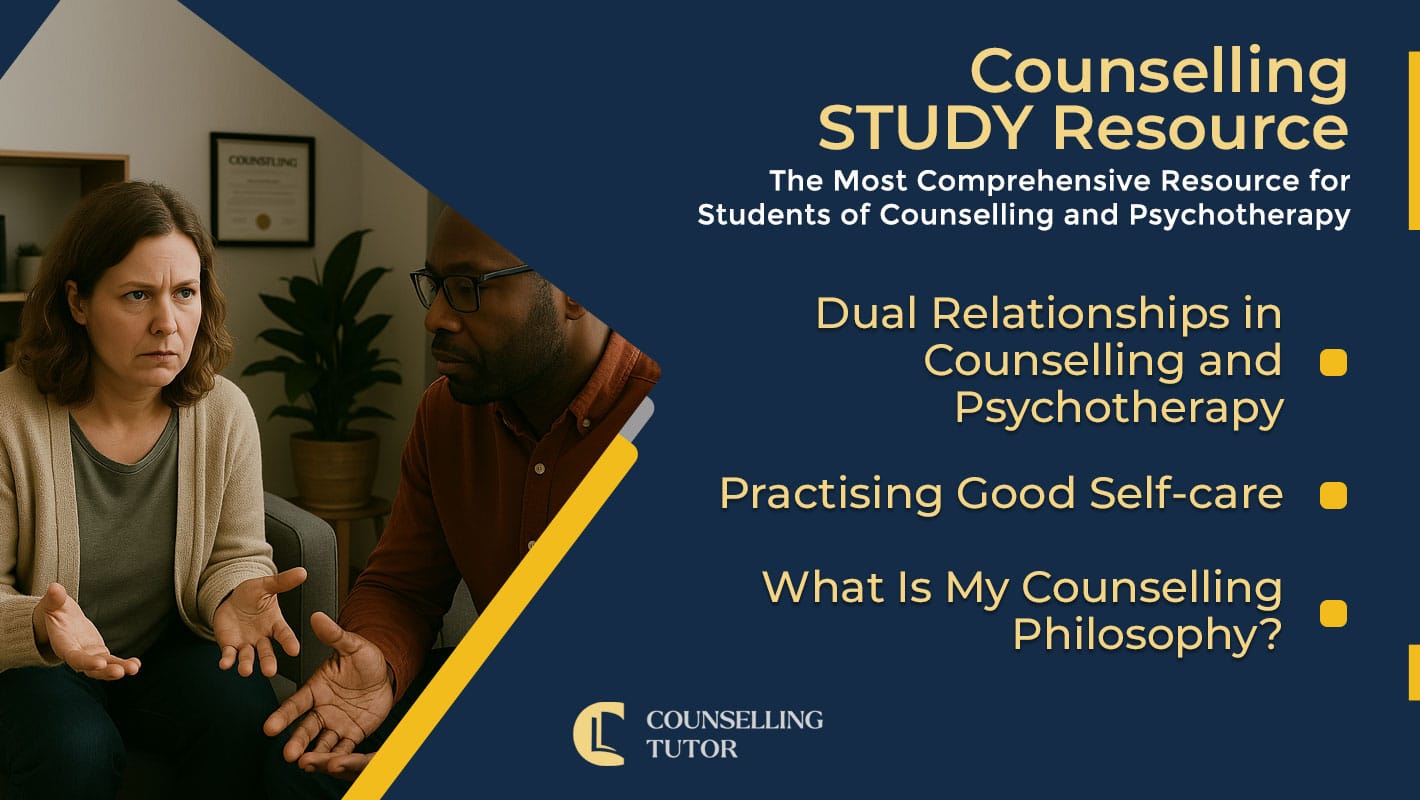See Counselling Skills Used in Real Sessions by Qualified Therapist
Real Sessions – Real Presentations – Real Skills
Gain the competence and confidence to use counselling techniques effectively!

In Episode 339 of the Counselling Tutor Podcast, your hosts Rory Lees-Oakes and Ken Kelly take us through this week’s three topics:
Firstly, in ‘Ethical, Sustainable Practice’, we explore the potential dangers of dual relationships in counselling and psychotherapy – how they arise, the ethical implications, and strategies to manage them appropriately.
Then in ‘Practice Matters’, Rory speaks with Sally Anne Armitage about her lecture on practising good self-care – a vital skill for therapists at every stage of their careers.
And finally, in ‘Student Services’, Rory and Ken reflect on the importance of defining and understanding your personal counselling philosophy as a student and practitioner.
This week’s topic explores the often-overlooked issue of dual relationships in counselling and psychotherapy – where a therapist has another connection to their client beyond the therapeutic one.
Key points discussed include:

Real Sessions – Real Presentations – Real Skills
Gain the competence and confidence to use counselling techniques effectively!
In this week’s ‘Practice Matters’, Rory speaks with Sally Anne Armitage about her recent lecture on practising good self-care – a core component of professional resilience.
Key points of the conversation include:
Practical self-care suggestions:

On-demand access to a rich lecture library covering theory, skills, and professional development for counselling students—Mapped to the UK awarding body criteria
“The Student Library has been BRILLIANT, I can’t recommend it enough!
It has been a lifeline in helping me prepare for practice and my first clients. If you’re considering it, go-for-it, it’s absolutely worth it!”
Kelly – Graduated and now in practice.
In this final section, Rory and Ken explore the topic: What is my Counselling Philosophy? A question that may come up in training and supervision.
Key points include:
Student Assignment Tip:
If asked to define your counselling philosophy in an assignment:
Dual Relationships in Counselling and Psychotherapy

Get on-demand Certified CPD that is implementable in your practice
